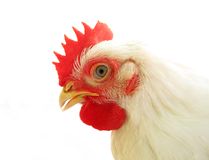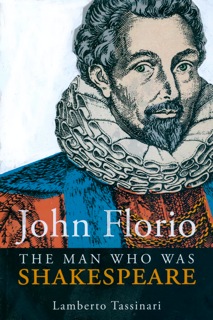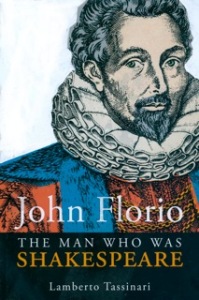Giuseppe A. Samonà
![bleu[1]](https://viceversaonline.ca/wp-content/uploads/2014/12/bleu1-150x150.jpg) Scende giù in vestaglia tutta scarmigliata lungo il viale che attraversando il bosco collega la sua casa alla nostra, agita un giornale, urla : Il colèra! il colèra! Ed effettivamente la prima pagina dice che a Napoli ce ne sono tre o quattro casi, forse dieci, e le cozze, il vibrione, il panico. Ma se a Napoli è così, cosa succederà a Palermo ? (ulula lei, dilatando l’ultima parola come una terrificante voragine : Palieaimmo…) Palermo, lo sanno tutti, è una Napoli più piccola e violenta, di arcaica, perniciosa isteria, pullula di picciriddazzi polverosi, c’è la milza che puzza di sangue, ci sono i ricci che si vendono per la strada – ne abbiamo fatto una scorpacciata la sera prima, li ha portati lo zio – e mill’altre schifezze marine, che si mangiano sempre e solo crude (la milza che puzza, picciridazzi, scorpacciate di ricci, pazzi ! pazzi ! pazzi !…). L’epidemia è certa. Hanno già bloccato le navi verso il continente, i treni, da e per, “ da ” soprattutto, e anche la nave, ché mentre stiamo parlando decine, anzi centinaia di morti si ammonticchiano nella stessa Napoli : anche se ovviamente sul giornale, che lei continua a sventolare come una prova, questo non può ancora esserci scritto. Gli altri adulti sembrano scettici : alcuni per spavalderia (il famoso zio arrivato da Palermo annuncia pomposamente che lui tornerà presto in città, perché ha voglia di molluschi vivi, di quelli che bisogna affondarci i denti per domarli, a Mondello, sul lungomare), altri per esorcizzante timore : … e comunque lavatevi le mani, bambini… E tutti più o meno bonariamente la sfottono : il giornale invita alla calma e lei, non da oggi, ha fama di essere un’esaltata – Cassandra, Cassandra… Tutti, ma non noi bambini : corriamo a lavarci le mani e poi eccoci di nuovo fuori, all’ombra del gelso, accucciati ai suoi piedi, sempre i capelli scarmigliati, lei, agitata, la vestaglia semiaperta, ad ammonticchiare morti e disastri per le vie di Napoli, anzi di Palermo, cioè Paleaimmo, scene di orrore, fiumi di fluidi e di merda, e poi orde di topi, i famosi voraci immondi topi ri Paleaimmo – il colèra ormai è peste – carretti pieni di cadaveri, a volte ancora vivi, o agonizzanti, o sepolti lì per sbaglio, tirati da uomini bavosi, più bava che uomini, con un campanaccio, demoni ghignanti che il morbo ha risparmiato, l’apocalisse. Ipnosi del terrore, il nostro – o anche: attrazione fatata… Noi, i bambini, siamo la tribù, formiche ma volanti in sciame, rapide come la notte, ed è troppo forte quel sentimento dentro di noi, non possiamo neanche far finta che non sia così, anche se certo lo nascondiamo, per paura che ci prendan per pazzi, ci separino, e facciamo il viso spaventato, ammutolito, ad arte, solo di tanto in tanto, al momento opportuno, quando il racconto sembra sul punto di assopirsi sazio, soddisfatto, una domanda semplice, un’esca, ora l’uno, ora l’altra: ma sei sicura ?, per riaccendere il flusso, le ondate di dolori, di merda, di morte, mentre il giallo del pomeriggio che avanza si scioglie nell’azzuro del cielo, nel verde, nel rosa, nel rosso del lontano orizzonte marino, insieme si mischiano con l’ultima luce del sole, l’affacciarsi delle prime stelle, a comporre un colore mai visto prima: blu – e una carezza tiepida, dolce ci avvolge. Nous sommes comblés.
Scende giù in vestaglia tutta scarmigliata lungo il viale che attraversando il bosco collega la sua casa alla nostra, agita un giornale, urla : Il colèra! il colèra! Ed effettivamente la prima pagina dice che a Napoli ce ne sono tre o quattro casi, forse dieci, e le cozze, il vibrione, il panico. Ma se a Napoli è così, cosa succederà a Palermo ? (ulula lei, dilatando l’ultima parola come una terrificante voragine : Palieaimmo…) Palermo, lo sanno tutti, è una Napoli più piccola e violenta, di arcaica, perniciosa isteria, pullula di picciriddazzi polverosi, c’è la milza che puzza di sangue, ci sono i ricci che si vendono per la strada – ne abbiamo fatto una scorpacciata la sera prima, li ha portati lo zio – e mill’altre schifezze marine, che si mangiano sempre e solo crude (la milza che puzza, picciridazzi, scorpacciate di ricci, pazzi ! pazzi ! pazzi !…). L’epidemia è certa. Hanno già bloccato le navi verso il continente, i treni, da e per, “ da ” soprattutto, e anche la nave, ché mentre stiamo parlando decine, anzi centinaia di morti si ammonticchiano nella stessa Napoli : anche se ovviamente sul giornale, che lei continua a sventolare come una prova, questo non può ancora esserci scritto. Gli altri adulti sembrano scettici : alcuni per spavalderia (il famoso zio arrivato da Palermo annuncia pomposamente che lui tornerà presto in città, perché ha voglia di molluschi vivi, di quelli che bisogna affondarci i denti per domarli, a Mondello, sul lungomare), altri per esorcizzante timore : … e comunque lavatevi le mani, bambini… E tutti più o meno bonariamente la sfottono : il giornale invita alla calma e lei, non da oggi, ha fama di essere un’esaltata – Cassandra, Cassandra… Tutti, ma non noi bambini : corriamo a lavarci le mani e poi eccoci di nuovo fuori, all’ombra del gelso, accucciati ai suoi piedi, sempre i capelli scarmigliati, lei, agitata, la vestaglia semiaperta, ad ammonticchiare morti e disastri per le vie di Napoli, anzi di Palermo, cioè Paleaimmo, scene di orrore, fiumi di fluidi e di merda, e poi orde di topi, i famosi voraci immondi topi ri Paleaimmo – il colèra ormai è peste – carretti pieni di cadaveri, a volte ancora vivi, o agonizzanti, o sepolti lì per sbaglio, tirati da uomini bavosi, più bava che uomini, con un campanaccio, demoni ghignanti che il morbo ha risparmiato, l’apocalisse. Ipnosi del terrore, il nostro – o anche: attrazione fatata… Noi, i bambini, siamo la tribù, formiche ma volanti in sciame, rapide come la notte, ed è troppo forte quel sentimento dentro di noi, non possiamo neanche far finta che non sia così, anche se certo lo nascondiamo, per paura che ci prendan per pazzi, ci separino, e facciamo il viso spaventato, ammutolito, ad arte, solo di tanto in tanto, al momento opportuno, quando il racconto sembra sul punto di assopirsi sazio, soddisfatto, una domanda semplice, un’esca, ora l’uno, ora l’altra: ma sei sicura ?, per riaccendere il flusso, le ondate di dolori, di merda, di morte, mentre il giallo del pomeriggio che avanza si scioglie nell’azzuro del cielo, nel verde, nel rosa, nel rosso del lontano orizzonte marino, insieme si mischiano con l’ultima luce del sole, l’affacciarsi delle prime stelle, a comporre un colore mai visto prima: blu – e una carezza tiepida, dolce ci avvolge. Nous sommes comblés.
È dunque questa la felicità ? Bambini che gridano mamma, mamma mentre il carro si allontana ? e quelli morti ? Gli adulti ? La desolazione altrui ? La disperazione ? No, certo che no, non è così – eppure (come spiegarlo ?), la coscienza tranquilla, non sentiamo dentro di noi nessuna indignazione, nessuna colpa, ma fuori (sentiamo), sul tetto, i ghiri che passeggiano avanti e indietro. È buio ormai, le stelle il cielo il mare lontano si sono inghiottiti a vicenda, non più mare, non cielo, non stelle, ma (com’è possibile?) è rimasto quel blu, ed è solo, ed è tutto, è come un suono continuo, visibile, un’impenetrabile, avvolgente sfera, con noi dentro, è blu. Ci siamo rifugiati su in soffitta per osservarlo meglio, sdraiati, attraverso la grande finestra obliqua, la tribù è al completo, e i nostri pensieri anche corrono avanti e indietro, come all’unisono, e stentiamo ad addormentarci : sì, siamo felici. Fuori, i ghiri passeggiano avanti e indietro, li sentiamo, e anche i nostri pensieri sentiamo, bum… bum… bum…, come se tutti insieme fossimo una sola grande testa, a disegnare gli eventi straordinari che muteranno, come in un sogno, la routine della vita : partire dalla Sicilia assolata, dove viviamo tutti insieme, comunità di bambini e adulti che solo e sempre giocano fra di loro, per di nuovo separarsi, scuola, lavoro, non più tutti insieme, crescere (è questa la vita)… ecco, questo sarà, è, oramai, impossibile. Siamo assediati – e la spianata, il Castello con i suoi sentieri che ramificano per abbracciare gli altri nostri possedimenti (qui siamo solo fra di noi a correre per i sentieri, e lo spazio sembra infinito) diventa nella nostra immaginazione una terra inattaccabile, dove è sempre estate e che non conosce la malattia e la morte, né il tempo che passa. E poi, pensiamo (sempre), e le nostre mani si stringono a formare una catena umana, e quei pensieri son parole senza bisogno di essere dette, se ci attaccassero (la malattia, la morte, il tempo che passa), combatteremmo: non è forse quello che avevano fatto Aiace, Achille, le Amazzoni, le cui amate avventure si intrecciano da sempre con le nostre ? (Ci anima, va da sé, Il domator di cavalli, ma il suo nome non si può pronunciare, o scrivere: siamo Troiani…) Vivremmo, in quel caso, ma da eroi, combatteremmo insieme, il pericolo della natura ci unirebbe, fra scherzi e prodezze vivremmo – vivremmo, sì, da eroi, fra dèi e deesse, o da eroi moriremmo : e tutti intorno a chi muore per strofinarlo, blu diventa il suo corpo, colore che sfuma, e sfumando diventa blu anche chi soccorre, è un’onda blu che dolce si propaga, ora che l’altro è morto soccorrono lei, lui, e si confonde con gli altri, che galleggiano come tanti iceberg, di nuovo tutti insieme, nel mare nostro, ed il cielo, le stelle: blu. Isolati, bloccati, attaccati, e combattiamo, il morbo, i l n o s t r o l u o g o, quel luogo magnifico, ma siamo caduti, la malattia, l’amore è più forte, o forse no, blu, sì, moriremmo, infine, o moriamo, stiamo morendo, le nostre mani sempre annodate in catena come in un quadro perenne, morendo… m o r e n d o … E finalmente – ma come? ma quando? – insieme lo sciame si adagia, ci addormentiamo, il rumore dei ghiri ci culla, i pensieri diradati son diventati un unico sogno, quel senso di carezza tiepida che ci avvolge. Siamo blu.
Questo era molti anni fa – perché sì, per fortuna l’epidemia finì per esser poca cosa, anzi, non è neanche veramente iniziata, siamo tornati nel continente dopo pochi giorni, l’estate è finita, il tempo ha ricominciato a scorrere normalmente, e normali, benevoli, son tornati i colori. La tribù si è sciolta, si è dispersa nel mondo e nella vita, molti son morti veramente, anche se non di peste, nessuno comunque è più tornato al Castello. Ma (è strano?) quando mi è capitato negli anni di rincontrare qualcuno di quegli antichi eroi, che fosse dentro l’agone, a comandare uomini e cose, o ritirato a coltivare il suo orto, come per incanto, invece di indagare sui nostri rispettivi destini, subito, sempre, ci siamo ritrovati a rievocare quella notte. Come un apice d’irraggiungibile felicità. Blu.

 Giuseppe A. Samonà
Giuseppe A. Samonà

![quattro-canti-via-maqueda-1931[1]](https://viceversaonline.ca/wp-content/uploads/2014/08/quattro-canti-via-maqueda-19311-300x197.jpg) Giuseppe A. Samonà
Giuseppe A. Samonà